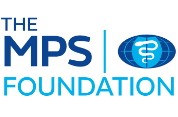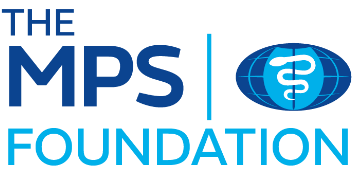Project title
An artificial intelligence-powered intervention to aid the informed consent process for cataract surgery
Country
UK
Background
Informed consent is a cornerstone of patient-centred care, ensuring individuals understand their treatment options, risks, and benefits. However, conventional methods – such as verbal explanations and written leaflets – often result in patients retaining only a small amount of the information provided. Studies have shown that a multimedia approach significantly improves information retention compared to traditional methods.
Moreover, conventional methods may not fully address the needs of patients with varying levels of health literacy and language proficiency, creating further barriers to effective communication.
Cataract surgery, while one of the most common and relatively safe NHS procedures, carries a high medicolegal burden due to its sheer volume. Many complaints and litigations arise from complications that are routinely covered during the consent process, highlighting a potential gap in how information is delivered and retained. Addressing this gap is essential to improve patient understanding, reduce anxiety, and minimise complaints.
Summary
This study evaluates the effectiveness of artificial intelligence-generated patient information videos compared to traditional written materials in improving the informed consent process for cataract surgery. The study focuses on two demographics: English-speaking and Bengali-speaking patients. This is particularly relevant given that the study site, Moorfields Eye Hospital in Stratford, serves a large Bengali-speaking population.
The aim is to employ a multimedia approach that caters to diverse patient needs and does not exacerbate existing health disparities. Synthesia is an advanced video creation platform powered by generative AI, designed to produce GDPR-compliant videos featuring lifelike human avatars that represent a wide range of ethnicities. These videos can be easily translated into multiple languages, enabling inclusive and accessible information delivery.
Participants are randomised into two groups: the intervention group, receiving AI-generated videos, and the control group, receiving standard written information. The study evaluates quantitative outcomes, including information retention, satisfaction scores, anxiety levels, and surgical cancellation rates, across both English-speaking and Bengali-speaking participants. Semi-structured interviews will also be conducted to explore patient experiences, platform usability, and barriers to accessing health information, with a focus on ethnic minority groups.
Outcome
The primary outcome of this study is information retention, measured through a validated five-question multiple-choice quiz completed by participants one week after their initial consultation. Secondary outcomes include changes in anxiety levels, assessed using the Spielberger State Anxiety Inventory (STAI) at the initial consultation and on the day of surgery, as well as satisfaction with the consent process, rated by both patients and clinicians using a five-point Likert scale. Additional outcomes include engagement with information materials, tracked by recording the time participants spend interacting with either AI videos or written leaflets, and surgical cancellation rates, documenting any same-day or short-notice cancellations. The study will also monitor incidents and complaints, analysing any formal complaints or litigation related to the surgery over a 12-month postoperative period. A qualitative component will involve semi-structured interviews with a sub-sample of 10 participants to gather feedback on usability, engagement, digital technology access, and perceptions of AI-generated consent materials.

